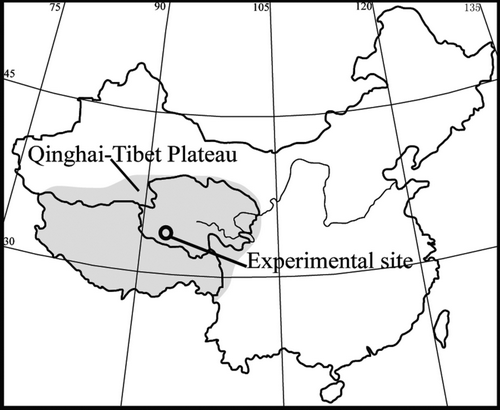Intensified plant N and C pool with more available nitrogen under experimental warming in an alpine meadow ecosystem
Updatetime:2017-04-27From:
【Enlarge】【Reduce】
Nitrogen (N) availability is projected to increase in a warming climate. But whether the more available N is immobilized by microbes (thus stimulates soil carbon (C) decomposition), or is absorbed by plants (thus intensifies C uptake) remains unknown in the alpine meadow ecosystem.
Infrared heaters were used to simulate climate warming with a paired experimental design. Soil ammonification, nitrification, and net mineralization were obtained by in situ incubation in a permafrost region of the Qinghai-Tibet Plateau (QTP). Available N significantly increased due to the stimulation of net nitrification and mineralization in 0–30 cm soil layer.
Microbes immobilized N in the end of growing season in both warming and control plots. The magnitude of immobilized N was lower in the warming plots. The root N concentration significantly reduced, but root N pool intensified due to the significant increase in root biomass in the warming treatment.
Research results suggest that a warming-induced increase in biomass is the major N sink and will continue to stimulate plant growth until plant N saturation, which could sustain the positive warming effect on ecosystem productivity.
This research achievement is published on Ecology and Evolution.

Fig. A map of the location of Qinghai-Tibet Plateau and the study site (Image by Xue Xian)
Appendix




